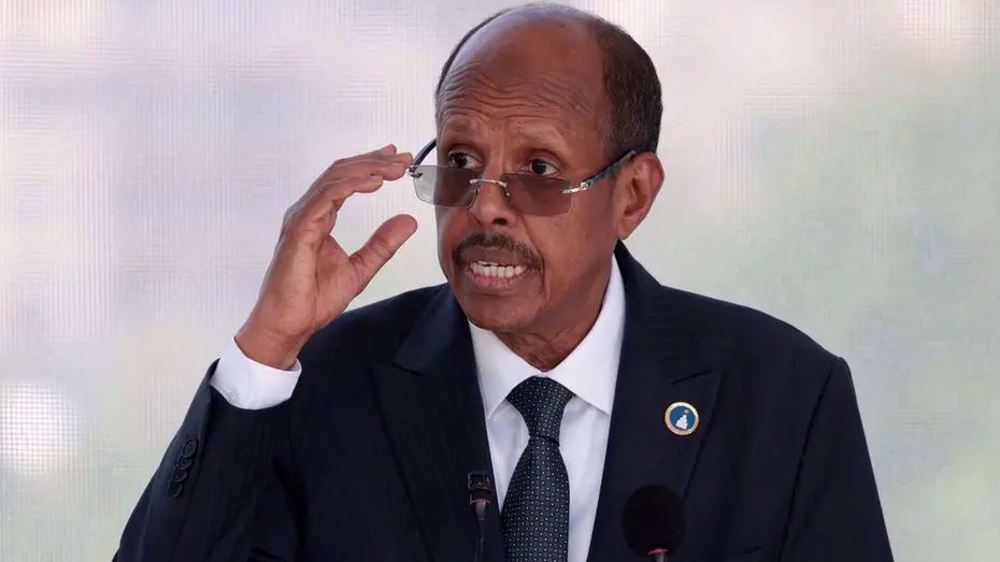UN to send 4,000 soldiers to South Sudan despite govt. opposition
The United Nations Security Council has authorized the deployment of a 4,000-strong protection force to the conflict-hit South Sudan despite Juba’s strong opposition to the move.
On Friday, the Security Council approved the US-drafted resolution with 11 votes in favor, while Russia, China, Egypt and Venezuela abstained, granting extended powers to the peacekeepers present in the African country and authorizing them to exert “all necessary means” to protect UN personnel and installations there.
There will be a total of 17,500 soldiers in South Sudan after the new deployment from a number of African nations.
The UN Mission in South Sudan (UNMISS) has been under fire during the past few weeks both for its inability to fully protect civilians when UN sites came under attack in the capital Juba last month, and for allegedly failing to intervene in cases that government forces reportedly committed sexual assaults outside UN camps in the city.
South Sudan has witnessed a new wave of conflict since early July, when gunfire erupted near the state house in Juba, where President Salva Kiir and then Vice President Riek Machar were meeting. The gunfire turned into a much heavier fighting, which involved tanks and helicopters, between the two sides during the next several days. More than 300 people were killed in the clashes.
The UN resolution also calls for an arms embargo on South Sudan if the government blocks the regional force.

South Sudan’s government, however, rejected accepting more UN peacekeeping force in the country on Wednesday, saying the move would give the UN the ability to govern and allow peacekeepers to “engage in combat,” thus “seriously" undermining the country's sovereignty.
President Kiir recently replaced Machar with a former peace negotiator, General Taban Deng Gai, after Machar left Juba with his troops earlier this month following fresh fighting between his loyalists and government forces. He said he would only return if an international peacekeeping force guaranteed his safety.
Gai, who leads a faction of Machar's party, was named vice president by Kiir after being fired as a minister by his own party leader. He, however, has agreed to step down if Machar returns to Juba.

South Sudan initially plunged into violence in 2013, when fighting erupted around Juba between troops loyal to Kiir and defectors led by Machar, his former deputy.
The conflict soon turned into an all-out war between the army and the defectors, with the violence taking on an ethnic dimension that pitted the president’s Dinka tribe against Machar’s Nuer ethnic group.
Thousands of people have been killed and more than three million forced to flee their homes in the war that started in December that year, when Kiir sacked Machar only two years after the country seceded from Sudan.
The UN refugee agency says nearly 110,000 South Sudanese, most of them women and children, have sought refuge in Uganda this year. Of those, 82,000 people have fled the country's recent wave of fighting.
The South Sudanese refugees in Uganda have been subjected to robberies and sexual assaults, according to the UN refugee agency. “Armed groups are also reportedly abducting children aged 12 and above from schools and threatening people.”
VIDEO | US ambassador’s remarks on Israel’s expansion spark outrage
VIDEO | ‘Protect the Right to Protest’ rally held outside London court
Trump denies rift with top officer over potential Iran aggression
VIDEO | Gaza bakery supports displaced families ahead of Ramadan Iftar
France blocks US ambassador from ministerial meetings after summons no-show
Around 20 govts. warn Israel secretly annexing West Bank
Iran pursuing broader cooperation with African nations: Pezeshkian
Israeli minister threatens to seize entire Gaza if Hamas refuses to disarm










 This makes it easy to access the Press TV website
This makes it easy to access the Press TV website